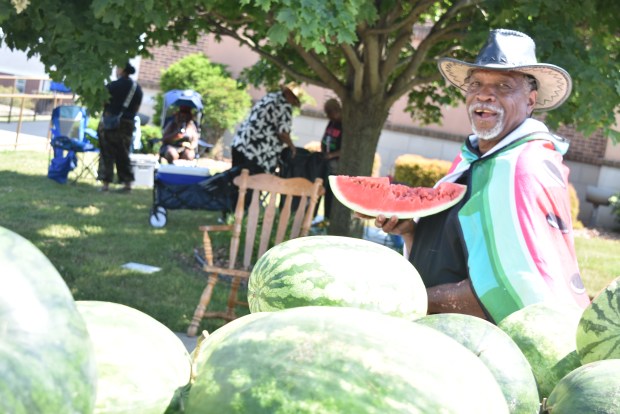Will County Judge John Anderson delayed a decision Monday on a consent order ending lawsuits against Aqua Illinois following concerns raised by some University Park residents that the $900,000 Aqua would pay for lead remediation was insufficient.
The consent order, brought before Anderson June 7, would end the years-long lawsuit between state officials, University Park and Aqua Illinois that began in 2019.
Anderson asked the attorneys to email him a copy of the agreement and told Daniel Deeb, an attorney representing Aqua, that he will make a decision in about a day or two.
Village attorney Burt Odelson said he is confident Anderson will approve the order.
The agreement states Aqua, which supplies water to University Park, will pay $900,000 to help eligible residents replace or fix kitchen faucets with lead-containing fixtures or lead solder.
The order also establishes a technical assistance program where residents’ tap water will be tested for lead. If tests show above 15 parts per billion, the federal lead action level, the resident will be eligible to receive a free filter device and an inspection of the visible plumbing.
If needed, further testing and inspection will be completed under the technical assistance program and Aqua will pay up to $3,500 for any work done to remediate higher lead levels, the agreement states.
If any of the settlement money is not spent, Aqua will pay up to $200,000 in civil penalties, according to the order.
The Rev. Reginald Williams, who preaches at the First Baptist Church of University Park, sent a letter to Anderson asking him to reconsider the consent decree.
Williams’ letter says the community needs at least $7.5 million from Aqua to properly remediate every affected home in University Park.
Assuming most residences in University Park have lead levels that exceed the federal standard, Williams said there is not enough money for all homes to receive remediation assistance.
“It was represented in there that people are looking for it to be righted for what has been done to University Park,” Williams said. “The amounts that have been given are insufficient. It’s totally insufficient.”
Kathryn Pamenter, senior assistant Illinois attorney general, told the judge if the case were to go to trial, any civil penalties would be allocated to the state and Will County. University Park residents would not receive any assistance for remediation, she said.
Odelson agreed to the consent order on behalf of the village at a pre-trial settlement conference June 7, but some residents and board members expressed dissent with the decision at a village meeting June 25, Odelson said.
Disagreements arose over the how much Aqua should pay for remediation. But Odelson said the residents voicing concerns misunderstand, saying this case it’s regulatory, not a class action lawsuit. Odelson said another case is pending where the village is suing Aqua for money and urges residents to direct their attention there.
“This is a regulatory case where the state is suing Aqua, to say clean up your water,” Odelson said. “That was four years before, the water has been clean for two and a half years.”
Odelson said the agreement is the best possible outcome given the village intervened in the lawsuit just this year.
The original consent order, which the attorney general and Will County state’s attorney’s office filed in 2023 to end the lawsuit, would have had Aqua pay $300,000 to remediate lead fixtures with up to $2,000 toward plumbing costs per residence. An additional $200,000 will go toward civil penalties.
“I came into the case and said that’s not enough, we need more,” Odelson said.
Anderson said Monday he tried to get the village to intervene for years. It wasn’t until the initial consent order was brought before the judge in October 2023 that the village decided to join the case.
Odelson said it was almost too late, but the judge was empathetic toward the village’s plight.
The lawsuit, filed by Attorney General Kwame Raoul and State’s Attorney James Glasgow in 2019, accuses Aqua of failing to provide safe drinking water, failing to comply with monitoring and sampling requirements, violating construction and operating permit requirements and creating a public nuisance.
According to the lawsuit, Aqua Illinois’ decision to switch its water source to the Kankakee River and introduce a blended phosphate mix into the public water system caused a chemical reaction that removed a protective layer in residential plumbing, which has subsequently led to elevated lead levels in the village’s water supply.
In October 2023, Raoul and Glasgow asked a judge to approve the first consent order after confirming that Aqua had consistently met the state’s lead action level in multiple six-month compliance sampling periods and implemented an effective corrosion control treatment for the public water system.
Shortly after the order was brought before a judge, village officials and residents told the Southtown they still do not trust the water.
Williams said he does not feel the village has been fairly represented throughout the case.
“It does not feel like the village has been represented well,” Williams said. “For certain, there’s mistrust in the village.”



